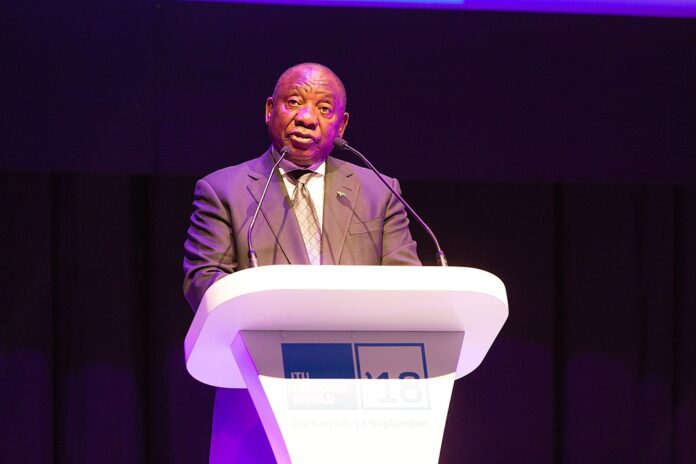Analysts weigh in on the prospects and hurdles for South Africa’s newly formed Government of National Unity (GNU)
South Africa’s political landscape has entered a new phase with the establishment of a Government of National Unity (GNU), following intense negotiations among 11 parties. Led by President Cyril Ramaphosa, the GNU aims to navigate the country through a period of crisis, uniting diverse political factions to address pressing national issues.
The formation of the GNU, described by analysts as both a necessity and a challenge, emerged amid a backdrop of political fragmentation and economic uncertainty. William Gumede, founder of the Democracy Works Foundation, underscored the significance of the GNU, noting that it represents a critical juncture for South Africa’s governance. “In times of crisis, a government of national unity becomes imperative, bringing in new resources, skills, and ideas that no single party alone can provide,” Gumede emphasized during a recent panel discussion.
Embed from Getty ImagesKey to the GNU’s formation was the Multi-Party National Convention, chaired by Gumede, which facilitated negotiations and compromises among participating parties. The African National Congress (ANC), despite failing to secure a majority in recent elections, retained pivotal roles within the Cabinet, reflecting its historical dominance in South African politics. However, compromises were made to accommodate smaller parties, such as the Democratic Alliance (DA), which secured fewer ministerial positions than initially sought.
Queenin Masuabi, a political journalist with Daily Maverick, highlighted the speed with which the GNU was established compared to traditional coalition governments. She acknowledged concerns of cronyism influencing ministerial appointments but noted that broader strategic imperatives guided the selection process. “The GNU is not without challenges,” Masuabi remarked, “particularly regarding the expanded Cabinet size, which some view as potentially unwieldy.”
President Ramaphosa, in outlining his vision for the GNU, emphasized the need for consensus-driven decision-making and policy coherence across coalition partners. The expanded Cabinet, now comprising 77 members including deputy ministers, has sparked debates over administrative efficiency and fiscal prudence. Analysts caution that larger Cabinets historically correlate with decreased effectiveness, posing a significant test for the GNU’s operational coherence.
Looking ahead, Gumede expressed cautious optimism about the GNU’s potential to deliver effective governance and economic stability. “This moment demands maturity and collaboration among political leaders,” he remarked, stressing the importance of conflict resolution mechanisms and nonpartisan oversight to sustain the GNU’s longevity.
Analysis:
Political Perspective: The establishment of South Africa’s GNU reflects ongoing efforts to manage political fragmentation and crisis amid electoral challenges. While the ANC maintains significant influence, the inclusion of smaller parties signals a shift towards collaborative governance. Political stability hinges on coalition partners’ ability to navigate ideological differences and prioritize national interests over partisan agendas.
Social Perspective: The GNU’s formation resonates with public expectations for stable leadership and inclusive decision-making. However, concerns over cronyism and Cabinet size reflect broader socio-political divisions and demands for transparent governance. Public perception of the GNU’s performance will influence voter confidence leading up to the next elections, shaping societal debates on effective leadership and accountability.
Racial Perspective: In South Africa’s diverse socio-political landscape, the GNU’s composition and policies will be scrutinized through racial lenses. The ANC’s historical ties to liberation struggles and demographic representation within the Cabinet underscore ongoing racial dynamics in governance. Equity in policy outcomes and inclusive representation remain pivotal in addressing historical inequalities and fostering national unity.
Gender Perspective: While gender parity in Cabinet appointments remains a concern, the GNU’s inclusion of diverse voices offers opportunities for advancing gender equality in political leadership. Efforts to empower women within decision-making roles and address gender-specific policy priorities will be critical in shaping inclusive governance and social progress.
Economic Perspective: Economic stability and growth prospects underpin the GNU’s mandate to address fiscal challenges and socio-economic disparities. The expanded Cabinet’s role in policy formulation and implementation will impact investor confidence and market dynamics. Effective economic strategies and fiscal discipline are essential for navigating South Africa’s complex economic landscape and enhancing public trust in government initiatives.
